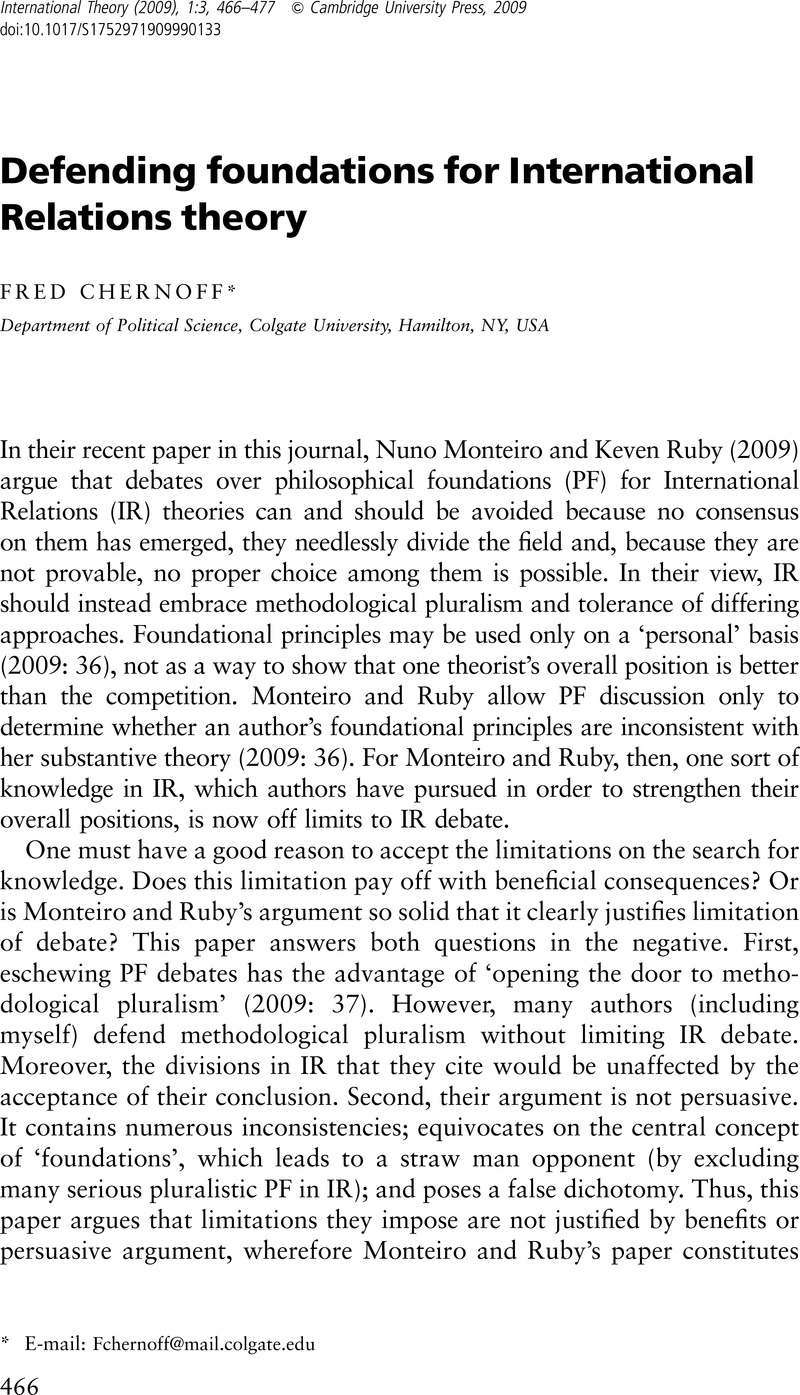Crossref Citations
This article has been cited by the following publications. This list is generated based on data provided by Crossref.
Monteiro, Nuno P.
and
Ruby, Keven G.
2009.
The promise of foundational prudence: a response to our critics.
International Theory,
Vol. 1,
Issue. 3,
p.
499.
Cornut, Jérémie
2014.
Les excuses dans la diplomatie américaine.
p.
167.
Cornut, Jérémie
2015.
Analytic Eclecticism in Practice: A Method for Combining International Relations Theories.
International Studies Perspectives,
Vol. 16,
Issue. 1,
p.
50.
Adler, Emanuel
2019.
World Ordering.





